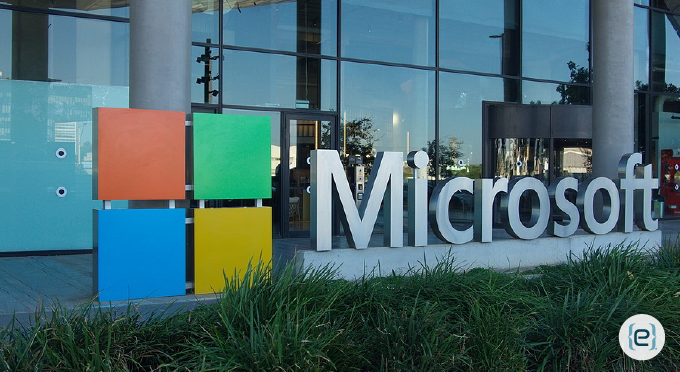Microsoft Commitment to AI Empowers Users and Programmers for Good


From healthcare to education, entertainment to cyber security, AI enables new possibilities and solutions for some of the most pressing challenges of our time. Recognizing its unique position to power positive advances, the Microsoft commitment to AI reaches throughout its products and beyond.
Microsoft Commitment to AI Research Through the Years
For decades, Microsoft has poured billions of dollars and many thousands of hours into advancing AI research. In January, Microsoft made headlines with a $10 billion investment in OpenAI. And just this month, the company announced a partnership with KPMG to co-develop generative AI tools. But Microsoft’s leadership in AI research began over 20 years ago.
In 2001, for example, Microsoft released the first version of its personal digital assistant, Cortana. And in 2014, the company introduced Project Adam, a deep learning system that recognizes objects in images with high accuracy and speed. Last year, Microsoft Research launched AI4Science, a global organization that applies AI to accelerate scientific innovation.
Microsoft researchers have long pioneered AI advancements in natural language understanding, machine translation, speech recognition, and image captioning. Using Microsoft Azure’s immense AI supercomputing resources, they have created AI models to accomplish a large range of tasks. And they make these resources available to the scientific and business communities.


Azure AI Empowers Intelligent Solutions
The backbone of Microsoft’s AI architecture involves Azure AI, a collection of AI services that allows organizations to design their own AI solutions. Data scientists and developers can access Microsoft’s AI models for speech, vision, language, and decision making. Or they can create their own machine learning models, taking advantage of Azure AI’s supercomputing infrastructure.
Microsoft has committed to building Azure into a supercomputer for the world, supporting its vision of democratizing AI. Additionally, partnerships with OpenAI and other AI innovators make it possible for Microsoft to offer its customers high-performance technology at production scale. And these customers are building exciting solutions!
For example, CarMax used Azure OpenAI Service to create summaries of customer reviews for 5000 car pages. Without AI, the task would have taken 11 years. But the company created the summaries in a matter of months. Additionally, Strabag SE used Azure AI to build a tool to identify possible impacts of construction projects from the start.
AI-enabled Features in Popular Microsoft Products
While developers profit from the computing power and learning models available through Azure AI, consumers also benefit. Microsoft CEO stated in January that eventually every Microsoft product will incorporate AI. Currently, AI enhances the personal and professional lives of end users in several ways.
- Microsoft 365 Copilot – Copilot acts as a creativity partner integrated directly into the Office apps. For instance, it can draft a Word document based on a brief prompt or outline. In Excel, it can analyze data or create formulas based on natural language queries. It can also summarize lengthy email threads and transcribe Teams meetings.
- Improved seller experience in Viva Sales – Enhanced by GPT, Viva Sales now offers a streamlined communication process. Using data in Microsoft Cloud, the system will alert sales personnel when they need to follow up with a customer. It can also generate a personalized email enriched with relevant data.
- Deep customer insights through Dynamics 365 – Since 2018, Dynamics 365 has used AI insights to deliver a 360-degree view of customers and detect payment fraud.
- GitHub Copilot – An AI pair programmer, GitHub Copilot uses AI to convert natural language prompts into coding suggestions. And because it can generate code in various coding languages, it helps coders work more quickly, even in unfamiliar environments.
Using AI for Good
Microsoft understands that powerful technologies such as AI can prove dangerous when used irresponsibly. Consequently, the company has committed to responsible AI from the very beginning of system design in all its products and initiatives. They have also initiated several key safeguards to protect the privacy and security of customer data.
Additionally, Microsoft has launched several initiatives related to their goal of using AI for good. These include projects such as the Planetary Computer that puts a global catalog of environmental data in the hands of conservationists. It also includes innovations to address health and humanitarian issues around the world.
To learn more about how your organization can harness the power of AI to drive productivity and build powerful AI solutions for business, contact the Microsoft experts at eMazzanti.
Recent Posts
Enhancing Your Professional Tone with Emojis in Business Digital Communication
Discover how emojis can enhance your business communication, adding personality and emotion to digital interactions.
Data Breaches Brand Reputation: How Security Slip-ups Can Shatter Consumer Trust
Discover how data breaches impact brand reputation and learn strategies to rebuild trust and strengthen…
Future Communication Technologies: Bridging Worlds with Quantum Leaps and Virtual Handshakes
Explore the future of communication with advancements in AI, 5G, and quantum technologies, reshaping global…
Future Cyber Security Legislation: What to Expect in 2025 and Beyond
Discover the upcoming trends in cyber security legislation, focusing on AI, IoT, and cross-border data…
Cyber Security Customer Data: Shielding Your Digital Gold Mine from Hackers
Protect your business from rising cyber threats with strong cybersecurity practices to safeguard customer data…
Big Data Marketing Strategies: Unlocking Customer Insights for Personalized Campaigns
Discover how big data marketing strategies can unlock customer insights and enhance personalized campaigns for…


